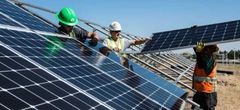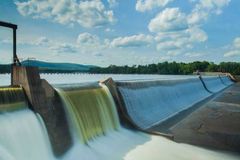![]()
![]()
![]()
Use LEFT and RIGHT arrow keys to navigate between flashcards;
Use UP and DOWN arrow keys to flip the card;
H to show hint;
A reads text to speech;
8 Cards in this Set
- Front
- Back
|
What is a renewable energy source? |
A renewable energy source means energy that is sustainable - something that can't run out, or is endless, like the sun. |
|
|
The most popular renewable energy sources currently are: |
Solar energy Wind energy Hydro energy Tidal energy Geothermal energy Biomass energy |
|

Solar energy |
Sunlight is one of our planet’s most abundant and freely available energy resources. The amount of solar energy that reaches the earth’s surface in one hour is more than the planet’s total energy requirements for a whole year. |
|

Wind energy |
Wind is a plentiful source of clean energy. Wind farms are an increasingly familiar sight in the UK with wind power making an ever-increasing contribution to the National Grid. |
|

Hydro energy |
As a renewable energy resource, hydro power is one of the most commercially developed. By building a dam or barrier, a large reservoir can be used to create a controlled flow of water that will drive a turbine, generating electricity. |
|

Tidal energy |
This is another form of hydro energy that uses twice-daily tidal currents to drive turbine generators. Although tidal flow unlike some other hydro energy sources isn’t constant, it is highly predictable and can therefore compensate for the periods when the tide current is low. |
|

Geothermal energy |
By harnessing the natural heat below the earth’s surface, geothermal energy can be used to heat homes directly or to generate electricity. |
|

Biomass Energy |
This is the conversion of solid fuel made from plant materials into electricity. Although fundamentally, biomass involves burning organic materials to produce electricity, and nowadays this is a much cleaner, more energy-efficient process. By converting agricultural, industrial and domestic waste into solid, liquid and gas fuel, biomass generates power at a much lower economic and environmental cost. |

